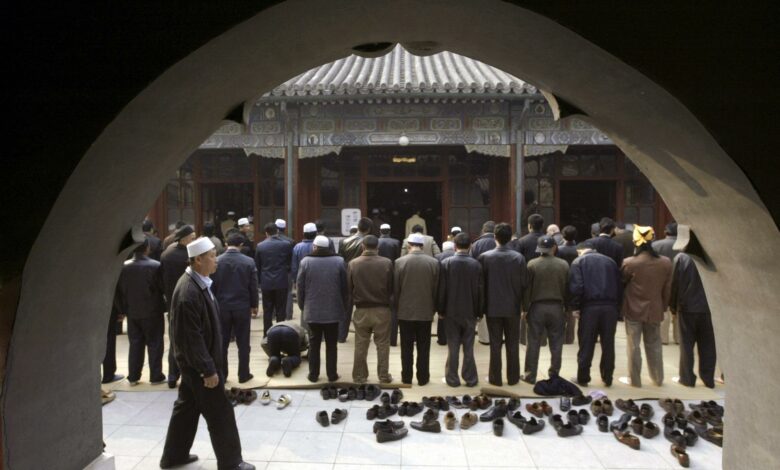Human Rights Watch has accused the Chinese government of violating the right to freedom of religion by implementing a "mosque consolidation" policy that significantly reduces the number of mosques in Ningxia and Gansu provinces. The human rights organization contends that these actions violate the fundamental right to freedom of religion.
According to Human Rights Watch, Chinese authorities have undertaken measures such as decommissioning, closing, demolishing, and repurposing mosques for non-religious uses as part of a broader effort to restrict the practice of Islam. This includes the removal of Islamic architectural elements like domes and minarets from numerous mosques. The organization claims that these actions are a consequence of President Xi Jinping's call for the "Sinicization" of religions since 2016, aiming to ensure that the Chinese Communist Party (CCP) controls people's spiritual lives.
Ma Ju, a Hui Muslim activist based in the United States, reports that the government's approach involves targeting Communist Party members who are also Hui Muslims and later extending efforts to persuade students and government workers. Those refusing to comply face potential consequences such as school probation and unemployment, highlighting the government's attempt to redirect the loyalty of devout Muslims towards the CCP.
The Chinese government contends that the mosque consolidation policy is intended to "reduce the economic burden" on Muslims, particularly those in impoverished and rural areas. However, Human Rights Watch points out that some Hui Muslims have publicly opposed the policy, despite government censorship. In January 2021, five Hui individuals were indicted for "creating disturbances" after leading a protest against the policy in Ningxia.
Protests against mosque closures, demolitions, and the removal of architectural features have been documented in various Hui Muslim regions, including Qinghai and Yunnan. Human Rights Watch emphasizes that these actions violate Article 18 of the Universal Declaration of Human Rights, which guarantees the right to freedom of thought, conscience, and religion, allowing individuals to manifest their beliefs through teaching, practice, worship, and observance.
The organization calls on the Chinese government to reverse its Sinicization campaign on religions, review and repeal laws restricting freedom of religion, and release those detained for peacefully criticizing or protesting against such policies. Maya Wang, acting China director at Human Rights Watch, asserts that these Sinicization policies demonstrate a disregard for religious freedom not only for Muslims but for all religious communities in China. The organization urges concerned governments to raise these issues directly with China and address them at international forums, including the United Nations.
“The Chinese government’s policies of Sinicization show a blanket disregard for freedom of religion not only of all Muslims in China, but all religious communities in the country,” said Maya Wang, acting China director at Human Rights Watch. “Governments concerned about religious freedom should raise these issues directly with the Chinese government and at the United Nations and other international forums.”










Trackbacks and Pingbacks